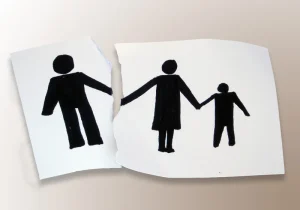
According to the Substance Abuse and Mental Health Services Administration (SAMHSA), nearly 8 million adults in the United States struggled with both a mental health disorder and addiction in 2014. When a person struggles with both alcohol addiction and anger management problems, the issues exacerbate each other. On the flip side, alcohol dependence commonly leads to significant withdrawal symptoms that are often side effects of alcohol addiction. Emotional withdrawal symptoms can include agitation, anxiety, depression, irritability, and tension as well as sleep disturbances, insomnia, and physical discomfort. The journal Experimental and Clinical Psychopharmacology reports on studies showing that alcohol can increase aggression in both men and women, but more so in men.
Treatment Options for Alcohol Abuse & Addiction

Alcoholics Anonymous highlights anger as a major relapse trigger, with co-founder Bill Wilson noting, “Resentment is the top offender. It destroys more alcoholics than anything else.” Addressing both addiction and anger is crucial. BetterHelp offers affordable mental health care via phone, video, or live-chat.

Treatment of Alcohol Use Disorder
By prioritizing personalized interventions, we can help individuals with healing and self-discovery. Through empathy and support, we can create environments that nurture healthier relationships with both alcohol and emotions. By enhancing assertiveness and interpersonal effectiveness, individuals can cultivate healthier relationships and reduce reliance on alcohol as a coping mechanism. It is crucial to understand the significance of co-treatment approaches for individuals grappling with both alcohol recovery and anger management.

Can Ozempic Treat AUD?
Yet, when these suppressed emotions resurface, they often manifest as different types of anger issues. If your behavior fits the description of an angry drunk, it may be difficult to admit you behaved that way under the influence. Many people whose behavior changes drastically with drinking have a hard time believing it when they’re sober.
Drinking, or even the anticipation of consuming alcohol, causes the production of dopamine. This impact can begin to take place after just one drink, depending on the person and other factors, he adds (2). Often, it takes months (or even years) before someone finds themselves physiologically and psychologically dependent on alcohol.
Many people struggle to achieve lasting recovery from alcohol dependence, highlighting the need to individualize patient treatment based on their life history, genes, coexisting illnesses, and other issues. “Evaluation of the patient for co-existing medical and psychiatric diseases is an important part of the assessment of patients with AUDs, but too often ignored or complicated by detoxification,” said Rummans. For example, AUD patients with major depression have significantly more relapses. If you or someone you know is suffering from addiction and could benefit from our wide variety of treatment programs and therapy options, contact us today. We want everyone that comes to us to leave and go on to live a happy, healthy, and sober life.

Inpatient Programs
- Anger, aggression, and hostility seem like common terms that are related to each other.
- Here are the common emotional experiences you need to explore before visiting your favorite bar.
- When combined with other evidence-based therapies, such as cognitive behavioral therapy (CBT), MAT can help prevent relapse and increase your chance of recovery.
- By seeking recovery for problems with alcohol and anger, you can work toward a more positive life.
Not having your most effective coping mechanism available to you all of a sudden can cause anger, irritability, and even grief. When you learn to give your anger a voice, it can fuel your quest for personal transformation and free your from addiction. Sponsors help new members work on the 12 steps toward sobriety and offer accountability. Studies have shown that sponsorship leads to better treatment outcomes, and those in 12-step programs with sponsors have better attendance and more involvement in the group. Take the first step toward addiction treatment by contacting us today.
That, paired with the way people make decisions when they’re drinking, is often a recipe for disaster. Contrary to popular belief, anger is not the sole emotional experience while drinking. anger and alcoholism While some individuals may indeed experience heightened anger under the influence of alcohol, others may encounter a range of emotions, including happiness, sadness, or even euphoria.
- Anger is rarely an isolated emotion, shedding light on its connection to alcoholism.
- If you require a drug and alcohol counsellor or clinician experienced in trauma, PTSD, anxiety and other concerns I can refer out.
- Violent behavior may occur in as much as 50% of people with alcohol use disorder (AUD).
- Understanding your emotions and making smart decisions about alcohol consumption is the best way to avoid problems.
- Some studies highlight the impairment caused by alcohol consumption on processing emotional faces.
- That’s why together, we develop custom individual treatment plans to take varying factors into account.
- Therefore, seeking a solution for alcohol-related aggression is essential for your future health and safety.
Why Does Drinking Release the Rage? Understand Alcohol-Related Anger and Aggression
This will give your brain time to regain its rational thinking and assess the full situation before reacting. You can always count again if you don’t feel ready to move forward yet. If any of these sources of anger resonated with you, you’re not alone.